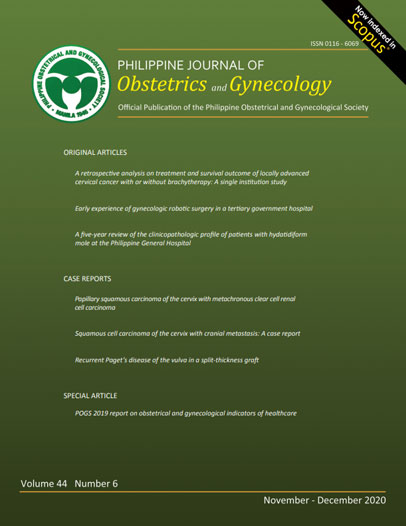Article Detail
Tuberculosis in pregnancy resulting to congenital tuberculosis: A case report
Anna Lyn T. Juego-Magbuhos, MD and Analyn F. Fallarme, MD, FPOGS, FPIDSOG
Department of Obstetrics and Gynecology, Medical Center Manila
Tuberculosis (TB) has been known to be nearly as old as human history. In 2017 WHO Global TB report, in the Philippines the incidence rate was 554/100,000. Tuberculosis contributed to a significant proportion of the global burden of disease, and has significant effect on maternal and perinatal outcomes. Congenital tuberculosis is a rare complication in utero of tuberculosis infection with reported incidence of only 358 cases in literature up to 1995 and another 110 cases reported between 1995 and 2009. This paper discusses the case of a 17-year-old young primigravida, diagnosed with tuberculosis few months before pregnancy and treated with first-line quadruple anti-TB regimen. However, she developed jaundice with elevated liver enzymes, hence, the medications were discontinued. Re-challenge of anti-TB drugs were done, however, the patient persistently showed signs and symptoms of adverse drug reactions to antiTB drugs. At 29 weeks age of gestation, she was admitted for control of preterm labor. Congenital anomaly scanning showed hepatomegaly, intraabdominal abscess, and pseudocyst formation, suggestive of congenital TB. Because of this, the anti- TB drugs were re-introduced despite the elevated liver enzymes with closer monitoring of liver function tests. However, despite aggressive tocolysis, the patient eventually delivered preterm to a live baby boy with poor outcome. The baby expired on the 18th day of life.
DOWNLOAD ARTICLE

